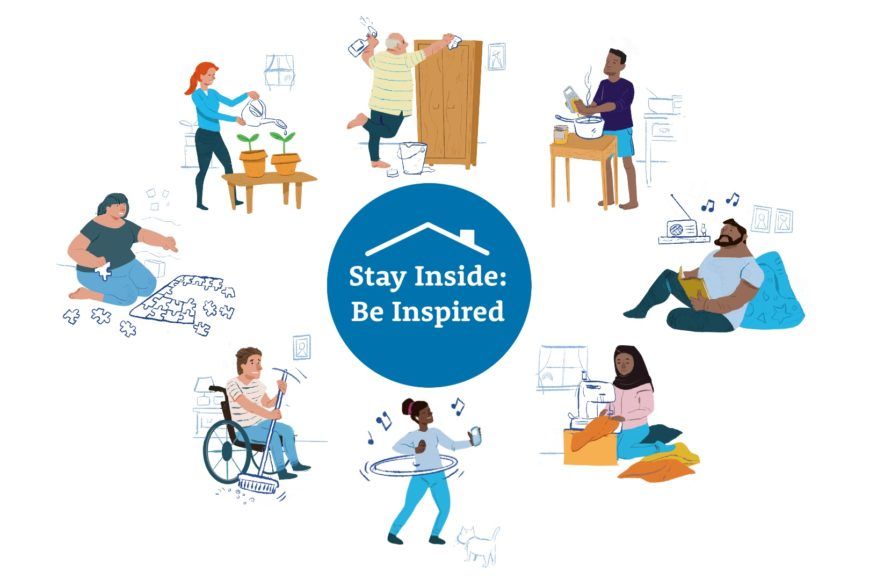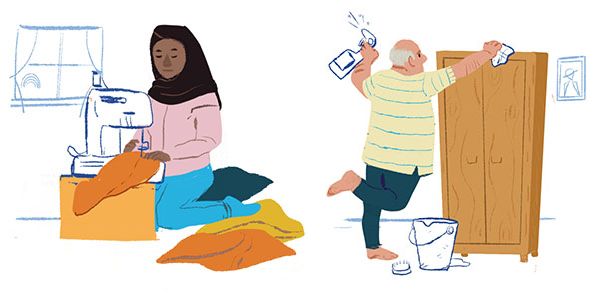Stay Inside: Be Inspired

The world has changed dramatically because of Covid-19. Even as lockdown eases, many of our day to day lives are very different.
While these changes have been hard for all of us, they can be particularly difficult for people with learning disabilities or autism.
That’s why we’ve created a guide to Active Support to help families and support workers give great support, even in challenging situations.
We also have online workshops, videos and a Facebook group where you can ask questions.
Using these resources, you can help the person you support to:
- Build a healthy routine
- Try new things
- Communicate what they need
- Take part in activities instead of being disengaged
- Make the most of life, whatever the circumstances
Stay Inside: Be Inspired guide to Active Support

Active Support is an evidence-based way of supporting people to take part in meaningful activities, and build skills and independence.
Download the Stay Inside: Be Inspired guide: this easy to read guide explains how Active Support can help you support someone.
Download the Active Support poster: this poster gives an at-a-glance overview of Active Support principles.
If you would like to receive a free hard copy of the guide and poster please email us with your name and address.
Active Support sessions
In these online sessions our specialists can help you work through the practical details of how to support a child or adult with learning disabilities or autism to take part in day to day tasks and activities.
To get the most from these sessions you should read the Stay Inside: Be Inspired Guide or watch our introductory webinar here.
Check back again soon for more sessions.
Facebook group: get advice from specialists and families
If you have questions about Active Support, or are having problems supporting someone, you can get advice from specialists, support workers and families in our Facebook group.
Video guides
Find more guides to Active Support and other ways to support people on our YouTube channel.
These free resources have been made with the help of the Tizard Centre at the University of Kent.

Download (PDF 5 MB)